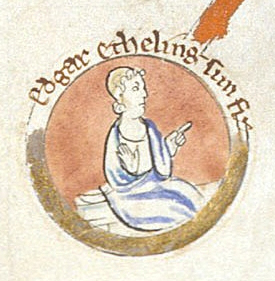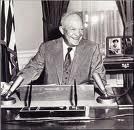Lenora Rogers's Blog, page 54
December 11, 2016
Pomanders and the Plague
Early December is busy for any academic, so just about the only handcrafted Christmas decoration/gift I can manage is the humble pomander. I wrap rubber bands and ribbons around oranges and lemons as Martha Stewart advises, and then stick in the cloves. But it doesn’t matter how many beautiful photographs of Martha’s Christmas vignettes I peruse for pomander-inspiration, I’m always going to think about the plague when I make these things. Given the contemporary belief in the s...
December 10, 2016
Maj. Buel Palmer, 16th New York Infantry, On the Battle
We are permitted to make the followin extracts from a letter from Maj. Buel Palmer, 16th Regt. To his wife, dated.
Camp near Alexandria, July 22.
My Dear Wife: You will see by the heading of this short note that I am again back at the old Camp. All of the 16th Regiment are safe, only one wounded. Lieut. Hopkins was shot in the foot, a slight wound; he will be about again in a few days. * * *
Thursday we took up our line of march for Centreville where Gen. McDowell’s army was to...
Edgar – The Boy Who Wouldn’t Be King
 History... the interesting bits!
History... the interesting bits!
Edgar theÆtheling was the only son of Edward the Exile and his wife, Agatha. His father was the son of Edmund II Ironside, king of England in 1016; Edward’s grandfather was, therefore, was Ӕthelred II (the Unready) and his uncle was Edward the Confessor, England’s king from 1042 until 1066. When his father was murdered in 1016 Edward and his younger brother, Edmund, were sent into exile of the continent by England’s new king, Cnut.
It is...
The Journey Begins…
Welcome to the London Wlogger! Thanks for joining me on our journey around the great city of London, exploring its hidden gems, places and sights all on foot.
I think we’re too dependent on public transport in London, we’d rather take a tube to get us 2 minutes from Victoria to Green Park than take a little longer on foot to experience the beauty of walking past Buckingham Palace and through Green Park itself.
Each time this blog, or wlog, (see what i did there!), will take yo...
December 9, 2016
Ike ’52: The Best known Candidate of All
Dwight David Eisenhower was past 60 when he ran for President in 1952.
Ike: Boy to Man
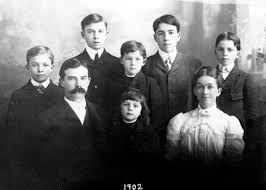 Ike (far left), his parents, and his tight knit family of six fine boys.
Ike (far left), his parents, and his tight knit family of six fine boys.
There is virtually nothing in the early years of Dwight David Eisenhower (1890-1969) that would point to the glories of his maturity. He was a farm boy, one of six fine, strapping sons born to a Pennsylvania-German family, who had relocated to Abilene, KS.
They weren’t poor, but they...
“Worth Crossing the Atlantic to See” –The Windmill Point Hospital
From John Hennessy:
It was the largest single hospital the Fredericksburg area has ever seen–more than 400 tents and 4,000 patients perched on a windy flat on what we know today as Marlborough Point in Stafford County. The Union army in 1863 called it Windmill Point Hospital. Work on the hospital started three weeks after the Battle of Fredericksburg, but the purpose of the place was not to care for the wounded. Rather, the hospital became the destination for the sick...
December 8, 2016
Hard Graft & Grasshoppers: Irish Homesteaders in 1870s Nebraska
 Irish in the American Civil War
Irish in the American Civil War
The middle of the 19th century saw substantial numbers of Irish emigrants journeying west in search of land and livelihoods. One of their destinations was the Nebraska Territory, which was organized in 1854. Newspapers like the New York Irish-American Weekly kept their readers in the east informed of events there from the earliest days of settlement, and reported on the potential opportunities and pitfalls of making a home on the frontier. Irish emigrants went...
Currer Woods Rock Carving, Steeton And Eastburn, West Yorkshire
 Currer Woods Rock Carving, near Eastburn, West Yorkshire.
Currer Woods Rock Carving, near Eastburn, West Yorkshire.
OS grid reference: SE 02514 43844.A very strange little rock carvingalmost hidden awayin a secludedcorner of a field at thesouthern edge of Currer Woods,at Steeton, west Yorkshire. This seems to be one on its own, andthere don’tappear to be any other carvingsatthis location, although you never know. To reach the stone carvingwalkup the footpath on the opposite side of the B6265 road from Airedale Hospital...
The Vanishing of Agatha Christie
“Do you know the feeling you have when you know something quite well and yet for the life of you can’t recollect it?”, is the opening line in Agatha Christie’s semi-autobiographical novel Unfinished Portrait. The book was published in 1934, eight years after her mysterious disappearance from her house in Sunningdale.
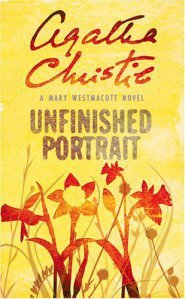 On the 3rd of December 1926 around 9.30pm, Agatha Christie kissed her sleeping daughter Rosalind goodbye, then went outside, climbed into her Morris Cowley and drove...
On the 3rd of December 1926 around 9.30pm, Agatha Christie kissed her sleeping daughter Rosalind goodbye, then went outside, climbed into her Morris Cowley and drove...
Why we need Santa more than ever…
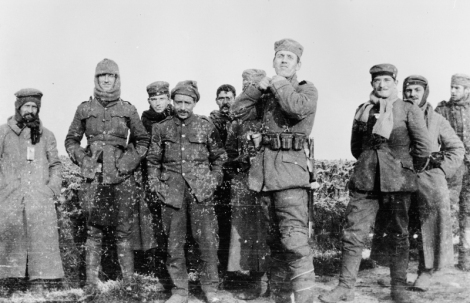 British and German troops during the Christmas truce in 1914 (pic: Imperial War Museum)
British and German troops during the Christmas truce in 1914 (pic: Imperial War Museum)
You might have read before about the Christmas truce of 1914, that impromptu gathering in the mud of Flanders’ No Man’s Land when German and British soldiers downed weapons and greeted each other as men, not enemies. For a few hours, the din of brutal battle was forgotten and the bond of common kinship rekindled over a shared smoke or a bit of prized grub saved for that special day.
Th...



